Corrosion in water pipes can lead to a host of problems, from reduced water flow and pressure to water quality issues. Addressing this common plumbing concern is essential for maintaining a functional water system. In this article, we will explore effective methods for how to remove corrosion from water pipes. Whether you’re dealing with green
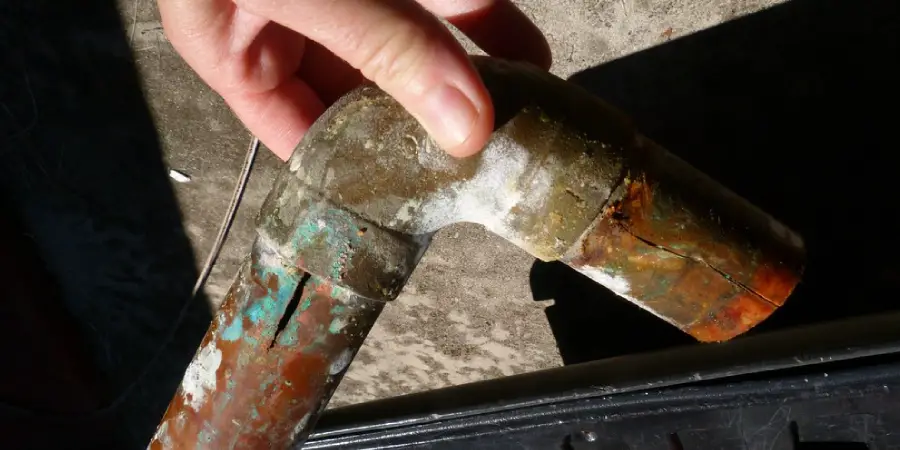
or rust on other materials, there are practical solutions to restore the integrity of your plumbing.
We’ll delve into various techniques, including chemical treatments, mechanical cleaning, and preventive measures to keep your pipes corrosion-free. From DIY approaches using household items to professional interventions, this guide will provide insights into how to effectively eliminate corrosion and ensure the smooth operation of your water supply system.
Understanding these methods is crucial for homeowners and plumbing professionals alike, ensuring the longevity and efficiency of water pipes.
The Importance of Removing Corrosion from Water Pipes
Water pipes are an essential part of any household. They provide us with the vital resource of clean water for daily use, such as drinking, cooking, and cleaning. However, over time, these pipes can become corroded due to various reasons. This corrosion not only affects the functionality of the pipes but also poses a health risk to those using the water.
Corrosion is a natural process that occurs when metal pipes come into contact with water and oxygen. It causes the metal to deteriorate, leading to weakened or damaged pipes. The buildup of sediment and rust can also restrict the flow of water, reducing its quality and causing low pressure.
Not only does corrosion affect the functionality of the pipes, but it can also impact our health. As the pipes corrode, small particles of rust and sediment can break off and contaminate the water. These particles may contain harmful bacteria, chemicals, and heavy metals that can be harmful if consumed. It is especially concerning for young children or people with compromised immune systems.
Therefore, it is essential to remove corrosion from water pipes regularly. This process involves cleaning the pipes thoroughly to remove any buildup of rust and sediment. It not only improves the functionality of the pipes but also ensures that the water is safe for consumption.
10 Methods How to Remove Corrosion from Water Pipes
1. Baking Soda and Vinegar Solution
One of the most effective ways to remove corrosion from water pipes is to use a baking soda and vinegar solution. This method involves mixing equal parts of baking soda and white vinegar in a spray bottle, and then spraying the mixture onto the corroded area. The baking soda will react with the acid in the vinegar, creating a foaming reaction that will help to loosen any rust or corrosion. Once the foam has had time to work its magic, simply scrub away any remaining debris with a brush or cloth.
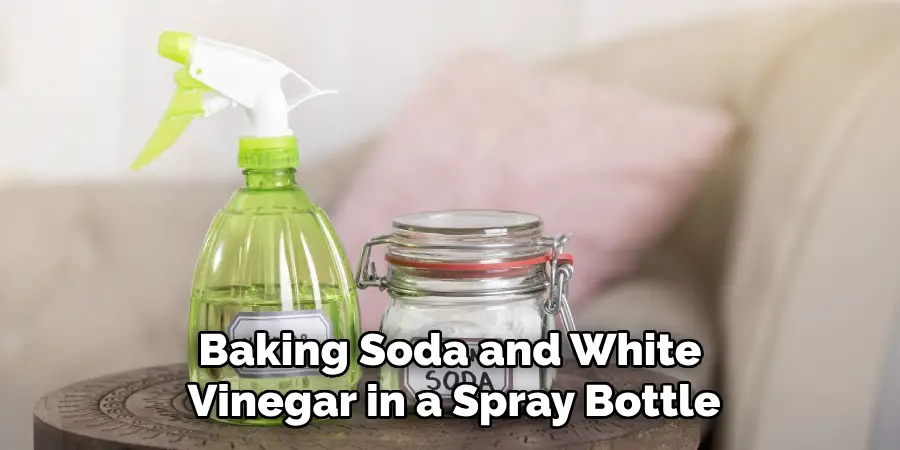
2. Salt and Lime Juice
Another simple way to remove corrosion from water pipes is to mix together salt and lime juice. Start by pouring 1 cup of table salt into a bowl, then add enough lime juice to make a paste-like consistency. Spread this paste over the corroded area and let it sit for at least 30 minutes before scrubbing away any remaining residue with a brush or cloth.
3. Wire Brush
If you’re dealing with more stubborn corrosion, then using a wire brush may be necessary. Start by wetting down the corroded area with some water, then use your wire brush to gently scrape away any rust or scale buildup on the pipe’s surface. Be sure to wear protective gloves while doing this as you don’t want to get cut by any sharp edges on the pipe!
4. Steel Wool
Another great way to remove corrosion from water pipes is by using steel wool pads. Start by wetting down the corroded area with some water, then lightly rub it with one of your steel wool pads until all of the rust has been removed from its surface. Make sure you wear protective gloves while doing this, as steel wool can be quite abrasive!
5. Sandpaper
Sandpaper can also be used to remove corrosion from water pipes if necessary. Start by wetting down the corroded area with some water, then use your sandpaper (either coarse or fine grain, depending on how much rust is present) to carefully rub away any buildup on its surface until it is smooth again. Make sure you wear protective gloves while doing this, as sandpaper can cause irritation if not handled properly!
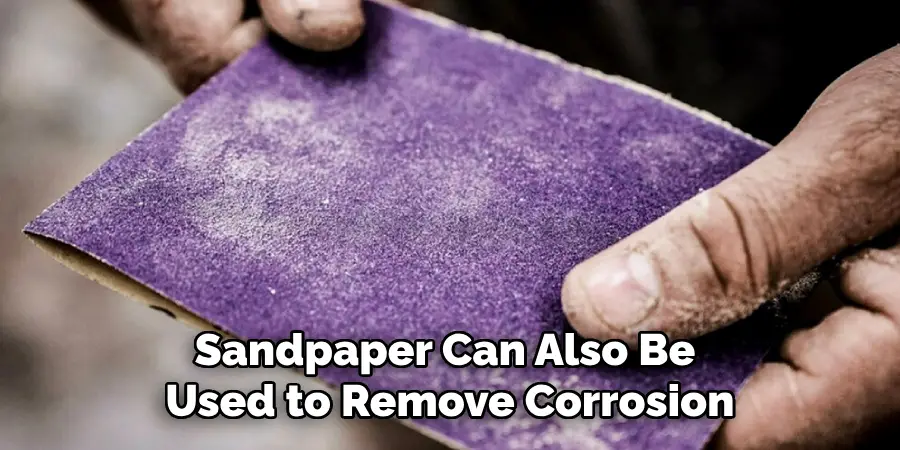
6. Lemon Juice
Lemon juice is another great option for removing corrosion from water pipes due to its natural acidic properties, which can help break down rust and scale buildup on metal surfaces over time without damaging them further, like other harsher chemicals might do! To use lemon juice for this purpose, start by squeezing out some fresh lemon juice onto a cloth before rubbing it over the corroded area until all of the rust has been removed from its surface – no need for scrubbing here either!
7. Coca-Cola
Coca-Cola may sound like an unlikely candidate for removing corrosion from water pipes, but surprisingly enough, it actually works quite well! All you need to do is pour some Coke directly onto your corroded pipe before letting it sit for around 10 minutes – during this time, it will help break down any rust or scale buildup on its surface before you can easily wipe it away afterward using a damp cloth or sponge!
8. Aluminum Foil
Aluminum foil may also come in handy when trying to remove corrosion from water pipes as its malleable nature allows it to conform around curves and crevices better than other materials, which makes it perfect for getting into those hard-to-reach places where rust tends to build up more often than not! To use aluminum foil for this purpose, simply wrap some around your finger (or whatever object fits best) before gently rubbing over affected areas until all of their grime has been wiped off – no need for scrubbing here either!
9. White Vinegar
White vinegar is another great option when trying to remove corrosion from water pipes, as its acidic properties help break down built-up grime without causing further damage like harsher chemicals might do! To use white vinegar, simply pour some directly onto your corroded pipe before letting it sit for around 10 minutes – during this time, it will help break down any rust or scale buildup on its surface before you can easily wipe it away afterward using a damp cloth or sponge!
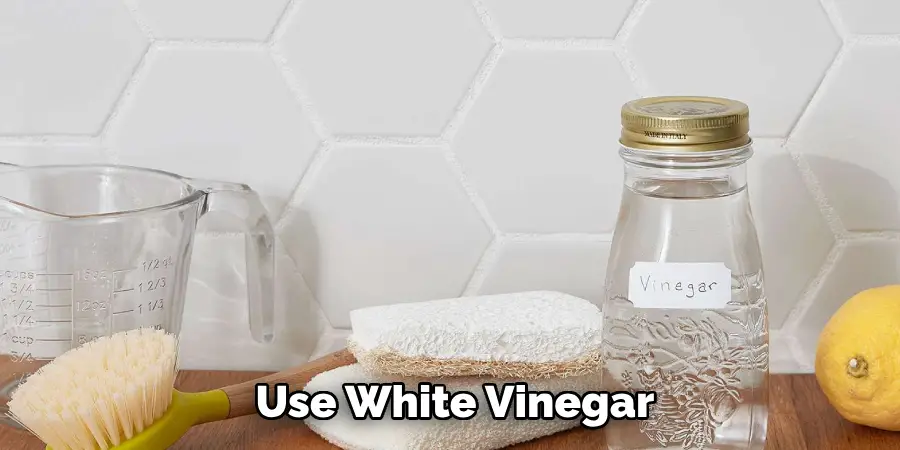
10. WD-40
WD-40 is one product that many people keep in their toolbox specifically because of how versatile and effective it can be when removing tough grime such as rust and scale buildup off metal surfaces like those found inside water pipes! To use WD-40, simply spray some directly onto your corroded pipe before letting it sit for around 10 minutes – during this time, it will help break down any built-up grime before you can easily wipe off afterward using a damp cloth or sponge!
Things to Consider When Removing Corrosion from Water Pipes
Corrosion is the process of deterioration or destruction of a metal surface due to chemical reactions with its environment. This can lead to serious damage in water pipes, resulting in leaks and reduced water flow. To prevent this from happening, it is important to regularly maintain and remove corrosion from your water pipes.
Here are some factors to consider when removing corrosion from water pipes:
Type of Corrosion
It is important to identify the type of corrosion present in your water pipes before attempting to remove it. This will determine the appropriate method and products needed for cleaning. Common types of corrosion include general, pitting, galvanic, and crevice corrosion.
Severity of Corrosion
The severity of the corrosion will also play a role in determining the best approach for removal. For mild cases, simple household cleaners or natural remedies may suffice. However, more severe cases may require professional help and specialized tools.
Safety Precautions
When dealing with corrosion and cleaning products, it is important to take safety precautions. Wear protective gear such as gloves, goggles, and masks to avoid contact with harmful chemicals. Make sure to also properly ventilate the area while working.
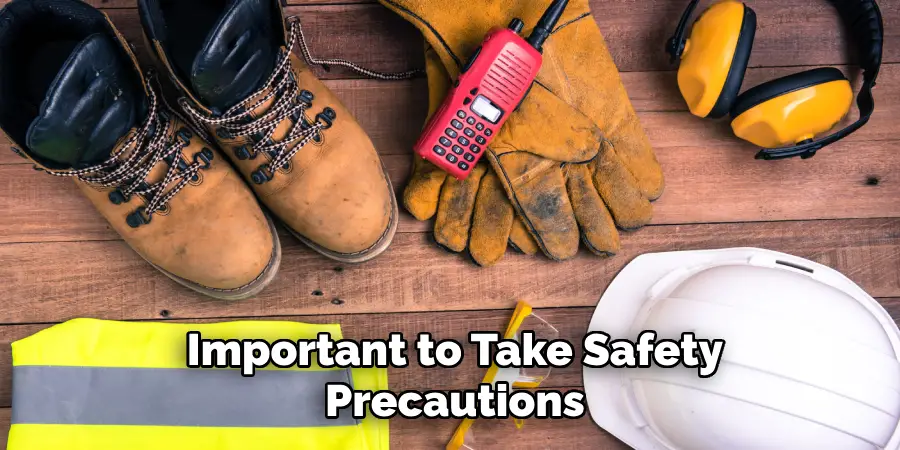
Cleaning Products
There are various cleaning products available in the market specifically designed for removing corrosion from water pipes. These include acidic cleaners, alkaline cleaners, and rust converters. Be sure to carefully read and follow the instructions on these products to ensure safety and effectiveness.
Conclusion
The corrosion in water pipes can be a daunting task but with the right tools and knowledge it doesn’t have to be. Take your time, don’t risk making it worse and remember to always wear the proper protective safety equipment. Whether you’re using a mechanical tool or any other recommended method, you can clean out your water pipelines and restore them back to their original condition.
Remember, if you don’t feel comfortable attempting to remove corrosion from water pipes yourself, reach out for help from a certified professional. Doing so will ensure that all of the steps are taken properly and safely, allowing you to enjoy free-flowing water without worry. Taking initiative in home maintenance is rewarding and helps keep repair costs down. Give it a try, do some research, watch some tutorials on how to remove corrosion from water pipes and get started today!

